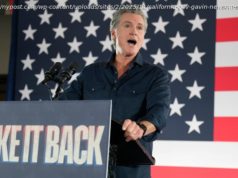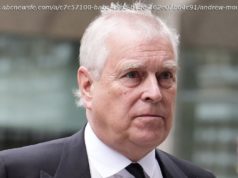After a 70-year stalemate, the high-stakes standoff between the United States and North Korea may finally be entering its endgame. President Donald Trump’s…
After a 70-year stalemate, the high-stakes standoff between the United States and North Korea may finally be entering its endgame.
President Donald Trump’s announcement Thursday that he would upend decades of diplomatic tradition and sit down for the first-ever meeting between the American and North Korean leaders blindsided foreign policy experts.
Five top analysts told The Post what the two sides are looking for — and what they may concede in return.
Ralph Peters, strategic analyst, retired U. S. Army colonel
We need to seek the complete denuclearization of North Korea and an end to their intercontinental ballistic missile program on stringent and completely verifiable terms. Any agreement that does not give us complete no-notice access to suspect North Korean sites renders the whole deal worthless. President Trump has to be very, very careful; this is not a real estate deal in the Bronx.
We need to avoid the American tendency to lay out everything in advance. I would not tell the North Koreans anything of what we might concede; as soon as you say it, you’ve already made the concession. If I can put it in military terms, we need to shut the f–k up and do the job.
The critical thing for the president is not to fall into the Kerry-Obama trap of self-identifying with a deal so deeply that he ties his ego up in it. That’s how you get a really bad deal. If the North Koreans are serious, we should be willing to negotiate in good faith while holding a hard line. But if they pull any shenanigans he needs to walk away immediately.
Soojin Park, public policy fellow, Woodrow Wilson International Center for Scholars; formerly of South Korea’s Ministry of Unification
I do not think we should have high expectations for the first meeting between President Trump and Kim Jong-un. It is a meeting, not a negotiation. But it is a good start to possible negotiations in the future.
North Korea is reported to have said earlier this week that Kim Jong-un feels no need to have nuclear weapons should it get a security guarantee from the U. S. The U. S. would need to show that it would be willing to provide that. Be it in the form of normalization of relations with Pyongyang or other incentives, the U. S. should show its carrot and its willingness to follow through should North Korea take concrete steps for complete, verifiable, and irreversible denuclearization.
Benny Avni, foreign policy columnist
The keyword will be “denuclearization of the peninsula”: complete dismantling of North Korea’s nuclear program verified by the UN nuclear agency. Also, the U. S. will ask — as it didn’t in the Iran deal — for the end of North Korea’s long-range missile program. Most crucially, a demand to dismantle all ICBMs, which in short order (likely months) will be able to hit not only Hawaii, but also California and even New York. Chemical and biological arms will likely be on the U. S. agenda as well.
I would add a U. S. demand to open the country to humanitarian inspections, including unannounced visits by human rights experts to Kim’s gulags, but Pyongyang is unlikely to accept that.
North Korea will likely demand an end to the Korean War, and replacement of the 1953 ceasefire agreement with a peace treaty. That will mean a demand to remove the U. S. troops stationed on the armistice line, the 38th parallel, since 1957. In reality, the force deters North Korean invasion of South Korea, so the U. S. will just say no.
Pyongyang will also demand “security guarantees” — assurances the US doesn’t seek regime change. Those demands should be unacceptable.
What is possible: some form of sanctions relief and even economic assistance, but only after North Korea has verifiably dismantled its arms program.
Michael Auslin, contemporary Asia fellow at the Hoover Institution, Stanford University
I don’t think we should give up or concede anything.
It would be a great mistake to rush into the first meeting ever between the United States and North Korea and seek out some grand bargain. There’s barely enough time to figure out where to hold this summit, let alone to decide what we want out of it. The White House has been saying, correctly, that these are just talks —not negotiations.
But they need to be on their guard to prevent North Korea from maneuvering them into accepting a grand bargain we have not fully thought through. And they must be equally wary of rejecting a grand bargain in a way that allows Kim Jong-un to say, well, he tried, but the U. S. was too inflexible — thereby keeping his nuclear program.
Patrick McEachern, international affairs fellow, Wilson Center
The nuclear talks are likely to begin with similar rough parameters from the 2005 agreement, which entailed denuclearization commitments in exchange for security guarantees, normalization of diplomatic relations, and sanctions relief. It remains to be seen if the two leaders will move beyond general principles for a follow-on negotiation, which itself would mark progress, or seek also an initial set of reciprocal commitments.






